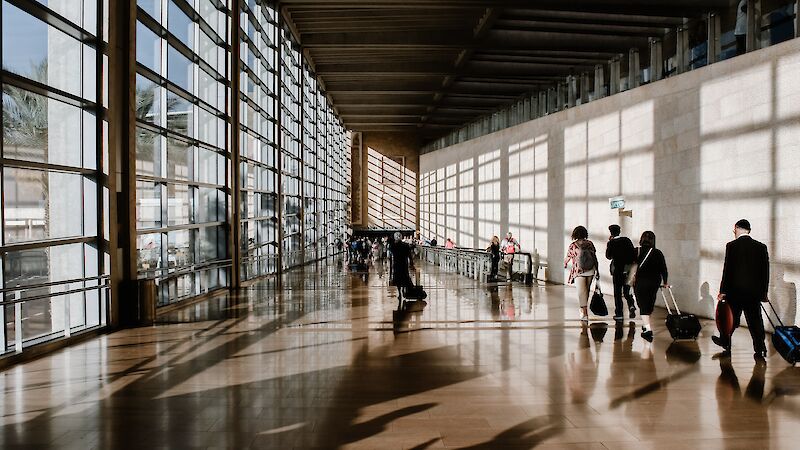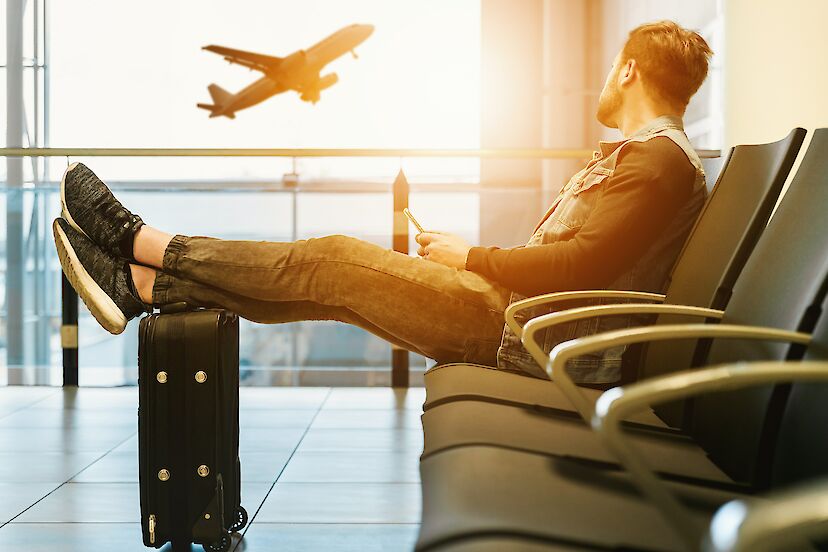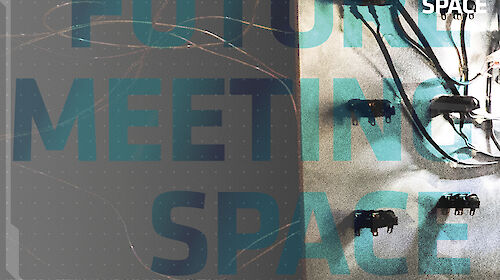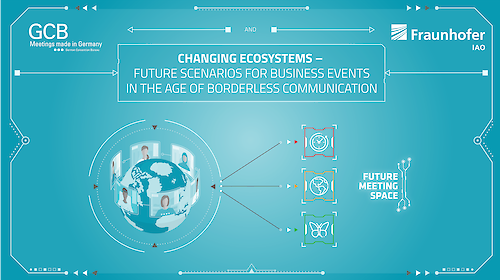Research Radar by Future Meeting Space
Nine Insights for the Future of Business Travel
 © Briana Tozour / Unsplash.com
© Briana Tozour / Unsplash.com
The new ecosystem of business events is characterized by digital and hybrid formats as much as by the longing for authentic locations, emotional experiences, and sustainable concepts. When deciding whether or not to physically attend an event, people's motivations are shifting.
Future Meeting Space's (FMS) latest study radar looks at global research on studies, reports, and articles. Especially since the Corona pandemic, there are countless studies on the future of events and business travel. The FMS innovation network has taken on the task of sifting through a large number of these existing studies in order to record the insights gained and identify any research gaps that still exist. Based on the topics business mobility, general travel trends, effects of the pandemic, motivation of event attendance as well as sustainable mobility, the status quo as well as whitespots for the event market of the future were evaluated in more than 80 studies. Across the studies, nine concrete theses can be derived, which serve as a basis for evidence-based forecasts of future changes.
1. Sustainability Influences Mobility Behavior.
Resource and emission savings will be important criteria when it comes to specific travel planning. The study data also show that companies are already responding to advancing climate change and are increasingly replacing air travel with train travel, for example. The younger generation in particular attaches great importance to an environmentally conscious lifestyle and therefore prefers post-fossil mobility.
2. The Emotional Experience Becomes the USP at Physical Events.
Travel and the emotional experience are closely intertwined. On the one hand, travel promotes the shared experience, and on the other hand, it supports the maintenance and development of relationships. Events will therefore continue to provide space for unexpected and spontaneous interactions and leave a lasting impression on participants.
3. Bleisure Travel Becomes an Integral Part of the Working World.
Combining work-motivated travel and leisure tourism is becoming increasingly lucrative for employees* and will therefore shape both corporate organizations and the hotel industry. Already 84 percent of those under 40 use this option and extend business trips for sightseeing, weekend stays with family and friends, and visiting relatives, among other things.
4. The Personal Sense of Safety and One's Own Health Are Paramount.
The Corona pandemic has increased the focus on physical and mental health. Because of this, all-encompassing hygiene concepts in particular are assumed in the case of physical participation. For one third of the respondents, their own health and safety are paramount. If these aspects are not taken into account, participants will increasingly attend an event virtually in the future.
5. The Personalized and Digitized Customer Journey Is Gaining in Importance.
Platforms to enhance the travel experience will become even more important in the future - especially to facilitate booking processes or for better socializing. The digitized customer journey will also play a role in the context of augmented reality, for example for orientation at the airport, to receive delays via smartphone, or as a full-body scanner.
6. Hybrid Formats Promote a More Conscious Approach to Travel.
The trend toward hybrid events with more digital elements will continue even after the pandemic. 76 percent of the companies surveyed are in favor of hybrid models in the long term, always weighing up the factors of travel expense, sustainability, and security risk. In view of these points, new business models can be expected to emerge in the travel segment, e.g., travel in the metaverse.
7. Expenditure on Business Travel Decreases.
Since the pandemic, there has been a decline in travelers, travel, and related spending, although some of this is becoming increasingly relative. The example from the study "The Future of Business Travel", shows that respondents expect the business travel budget in 2025 to be only 70 percent of what it used to be in 2019.
8. New Mobility Trends Are Changing the Choice of Transport.
The means of transportation of the future is green, flexible, and efficient. Trends such as shared mobility will play an important role in the future and will also play a greater role with regard to mobile working. The example of the "Mobility Zeitgeist Study - the mobile Generation Z" shows that every second person would like to see more offers that make mobile working on the move and in means of transport more feasible. In addition, multimodal mobility chains will be a central component of business travel, e.g., linking train travel, e-scooters, and the automobile.
9. Young Generations Rely on Green Mobility.
The importance of business travel for Generation Z plays a significant role, particularly in the context of the "war of talents. In this context, the design of business travel is an expression of a company's values. For younger generations, sustainability and climate protection are very important and they not only advocate sustainable travel in their private lives, but also demand it in a business context.
Conclusion
On the one hand, the evaluation of the studies reveals concrete starting points for the event market of the future, but on the other hand, it also shows that there is still a need for action and whitespots: Based on the results, three main topics can be identified that have not yet been examined in detail and for which meaningful data is lacking:
- First, travel motivation for post-Corona pandemic travel. Data on this is sketchy, and it remains unclear why business travel will continue to be an important part of the office and work environment and what reasons will drive people to travel in the New Now.
- Second, there is a lack of cluster analysis to represent different travel typologies. This raises the question of how people can be grouped into travel typologies and the differences that result in their travel motivations as well as their behaviors.
- Third, there is a lack of studies on the importance of business travel for Gen Z, or concrete business travel models that motivate the young generation to travel.
Future Meeting Space's current 2022 research phase is looking at precisely these whitespots. The central questions are: Why, in what form and how often will people attend physical events in the future, and what added value will they gain as a result? In the process, different travel typologies will be worked out, destination and experience promises identified, and recommendations for action for stakeholders determined. The results of the first survey on event traveler typologies will be published from July 2022.
Selected Studies
Bitkom 2019: “Die Zukunft des Reisens ist digital”.
Deloitte Insights 2021: “Return to a world transformed”.
DRV 2021: “Chefsache Business Travel Studie 2021”.
Kompetenzzentrum Tourismus des Bundes 2020: “Die Zukunft der Geschäftsreise”.
Mariott International & PCMA 2019: “The Future of Meetings & Events”.
SAP Concur Deutschland: “Geschäftsreisen in der neuen Normalität”.
UFI 2021: “UFI Global Exhibition Barometer”.
Zukunftsinstitut / Ford GmbH 2020: “Mobility Zeitgeist Studie – die mobile Generation Z”.



 ©
© ©
© ©
© ©
©